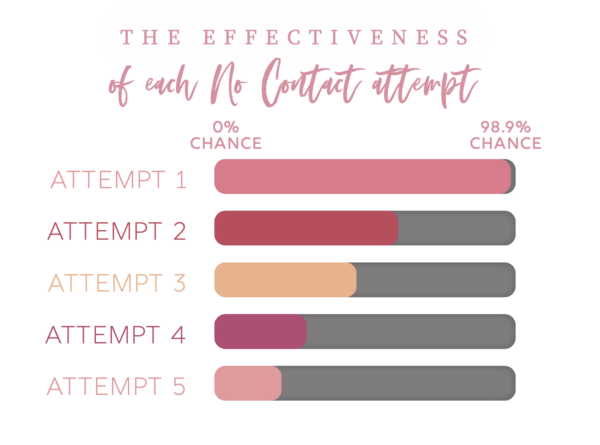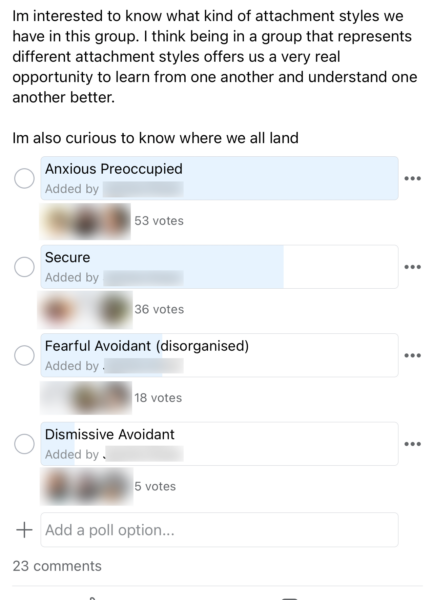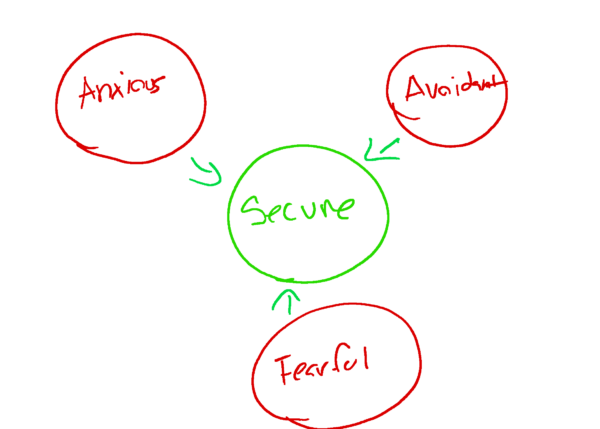One of the most difficult situations that you might encounter in a breakup recovery situation is figuring out how do you deal with an ex who had a family member pass away.
There’s a lot of things that go into this.
- You know, there’s the situation where maybe you don’t want to get them back and what the protocol is there.
- There’s the situation where you do want them back and figuring out what the protocol is for that.
- And then there’s a situation when you do have them.
So what I’d like to do today is actually work through this very difficult situation and give you some basic guidelines to follow.
I’m going to be answering:
- If you should break no contact
- What you should say if you do end up breaking no contact
- What you should do if you are past the no contact period
- What you should do if you actually have your ex back already
But I’d actually like to start by making an admission.

What Are Your Chances of Getting Your Ex Boyfriend Back?
Take the quizI Was Wrong In How To Approach This Situation In The Past
I used to recommend clients to ignore their exes during the no contact rule if they had a family member suddenly pass away.
Here’s proof:
I no longer believe it’s in your best interest to ignore your ex.
What changed my mind?
Simple, data did.
Here’s what the data implies: it’s crucial not to be rude to your ex.
I mention this because, like I said, in the past, particularly for those abiding by the no contact rule, I would recommend that if their ex had a family member pass away, they shouldn’t break the no contact rule.
I urged them to stick to it, to overlook the event.
(Watch the video above for proof of that.)
However, over time I’ve realized that this might not be the best long-term advice. As the years ticked by, as more data started to roll in, I noticed that people tend to harbor resentment towards you for ignoring them, especially when someone exceedingly close to them has passed away.
Exes are often anticipating a basic level of decency, some sort of condolences at the very least and when they don’t receive it from you, they bear a grudge, which typically hinders your ability to progress past the no contact rule.
So, How Do You Handle The No Contact Rule In This Scenario?
The first question you should always ask yourself when you find out that a family member of your ex has passed away is whether you should break the no contact rule.
My answer to that is, it depends.
If the person was particularly close to them, then yes, it might be acceptable to break the rule and offer some basic condolences.
Following this, you can revert to and restart the no contact rule.
However, there is one minor exception to this rule.
I’ve often discussed how the no contact rule can lose its effectiveness each time it needs to be restarted.

What Are Your Chances of Getting Your Ex Boyfriend Back?
Take the quizWe’ve discovered that if you’ve reset the no contact rule four to five times, it loses much of its potency. Therefore, if your ex has lost a family member and you’ve broken the no contact rule eight times before, it might not be in your best interest to continue breaking it.
Naturally, this brings us to the dilemma of what to say when you have to break the no contact rule to offer condolences.
Here’s What To Say When You Do Break The No Contact Rule
I believe it’s important to keep it fairly generic.
You should avoid drawing your ex back into their grief.
Instead, extend your condolences, then swiftly return to the no contact rule.
The rationale is straightforward: you don’t want to appear heartless.
A recurring theme in this discussion will be to “acknowledge but don’t fix.”
Consider it your new personal mantra.
Interestingly, my wife brought up a pertinent point in a conversation last night when I explained to her that I was planning to have this discussion.
She suggested there might be gender differences at play.
However, none of what I’m about to utter has been conclusively backed by any peer-reviewed research as yet. Let’s just say it’s our joint opinion (my wife and I’s.)
She made the point that women often exhibit more caregiving tendencies, so when they see someone going through a hard time, they naturally want to resolve the problem.
This observation is somewhat supported by our understanding that most of our clients exhibit anxious attachment styles.
We’ve discovered that individuals with anxious attachment styles tend to exhibit codependent tendencies, and people with codependent tendencies often act as problem solvers or controllers as they desire to manage the circumstances.
Hence, there’s a natural inclination to want to fix the problem. However, it’s crucial that you resist this urge.
Instead, simply acknowledge the situation but don’t fix it. Just go right back into the the no contact rule.
But What If You Aren’t In A No Contact Period?
My suggested approach is to serve as a diversion for your ex.
Again, if they mention it, acknowledge it, but refrain from attempting to fix it.
The critical factor here is to let them take the lead.
Wait for them to text you.
Sometimes, people who’ve experienced such a loss need space, and you may inadvertently harm your case by emitting anxious energy.
As mentioned in the previous section, individuals, specifically women with anxious attachment styles, who tend to be somewhat codependent, have a tendency to play the role of fixers.
They aspire to be the knight in shining armor, but often end up exuding anxious energy, which is the last thing someone grieving needs. So, to REALLY hammer this point home, refrain from adding to their stress.

What Are Your Chances of Getting Your Ex Boyfriend Back?
Take the quizInstead, strive to be a secure, calming presence, offering a welcome distraction as they grapple with their grief.
In fact this is the exact advice I gave to someone on our community livestream just yesterday actually.
This person was asking how they should handle a situation where their ex’s father passed away.
The main point I kept hammering home for this individual is you need to be the person that your ex comes to when they want to get away from it all. Because not only will that raise your value but it bring you two closer together.
But once again it’s important for you to acknowledge but don’t try to fix the problem.
Listen to their issues but don’t sit there and overly try to control and fix it and be the white knight in shining armor. You’ll actually be the white knight in shining armor if you are the distraction that takes them away from it.
One of the things I’ve noticed a lot of in our community is individuals talking about their ex’s who have gone through this profound loss and how one of the common themes that our clients really get upset about is the fact that they aren’t the distraction that their ex goes to.
In fact their ex is actually going out with friends and sort of partying and trying to get away from the grief and they’re feeling jealous that’s not them.
And what I always think in the back of my mind when I read something like that is:
“Well, it’s probably because the ex associates you with anxious energy and as a result of that they want to go to someone who just doesn’t talk to them about it. Someone who will provide the ultimate distraction by helping them avoid their grief.”
But What About Situations Where You Are Already Back Together?
Once again, at the risk of sounding like a broken record,
Acknowledge the problem don’t fix it.
But here’s the one caveat I will say: It’s important that you’re a little bit more supportive and you’re spending more time with them.
You don’t need to bring their loss up, you just need to be there.
This approach seems particularly effective for people with avoidant tendencies, who often have backgrounds marked by instability or neglect during their childhood.
In a peculiar way, the death of a parent can deeply affect such individuals.
If you can provide an environment reminiscent of the security a caring parent would offer a child, they are likely to appreciate and gravitate toward that.
So, really harp on the secure attachment gravity concept,
But it’s essential not to smother them.
While it’s important to offer increased support, you should still allow them to take the lead, providing space when needed.
When they do open up about their struggles, acknowledge their pain without trying to fix it.
Many people have the impulse to play therapist, but it’s crucial to leave that role to the professionals.
The most beneficial thing you can do is simply to be there for them.




